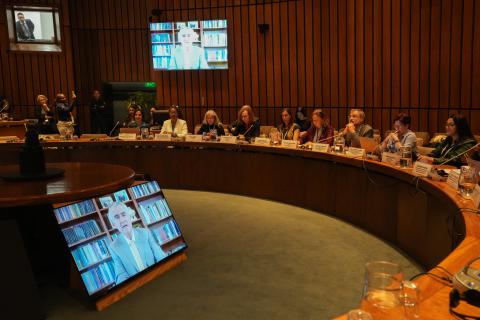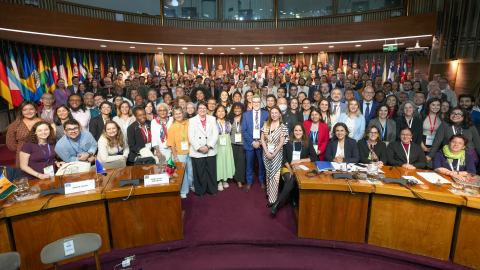Briefing note
Delegates from the 21 signatory countries of the declaration on the application of Principle 10 of the Rio Declaration on Environment and Development—which consecrates the rights of access to information, public participation and justice in environmental matters—continue with the negotiation process to strike a regional agreement on these issues, with significant participation by the public.
The Third Meeting of the Negotiating Committee on the Regional Agreement on Access to Information, Public Participation and Justice in Environmental Matters in Latin America and the Caribbean, organized by the Economic Commission for Latin America and the Caribbean (ECLAC) and the government of Uruguay, concluded on Friday, April 8, 2016, in Montevideo with important progress on the agreement’s definitions, principles, general obligations and access to environmental information and on a commitment to continue negotiations in the Dominican Republic.
After a speech by Uruguay’s Minister of Housing, Territorial Planning and Environment, Eneida de León—who emphasized the importance of the regional process and of the implementation of access rights in Uruguay—the closing ceremony of the Third Meeting of the Negotiating Committee was headed by José Luis Remedi, Director of Environment at Uruguay’s Foreign Affairs Ministry, and Joseluis Samaniego, Director of ECLAC’s Division of Sustainable Development and Human Settlements.
In his closing remarks, José Luis Remedi thanked all the participants, especially members of the public and the delegations, and, in his role as President of the Committee’s Third Meeting, reiterated his willingness to receive new contributions to this negotiation process. “The issues being addressed are very important; transparency is fundamental in actions aimed at protecting natural resources, which is a priority for our governments. We are going to continue in the Dominican Republic and we will work hard to arrive at a text in 2016 that can be approved by everyone,” he added.
“This process will leave a mark on the integration of Latin America and the Caribbean and will help redefine the relationship between the State, the market and society,” Joseluis Samaniego said. “By tending to the relationship between development and quality of life, it can become a force for development and progress. That is why I hope this instrument that we are negotiating can be a transformational agreement that triggers real change in the region.”
In addition to other accords reached during the meeting, participants approved a document with a revision of the modes of public participation in the Negotiating Committee of the regional agreement, in which the various forms of participation are outlined and the importance of this issue is highlighted, with the objective of strengthening the process’s inclusiveness and legitimacy.
They also agreed to hold a fifth meeting of the Negotiating Committee at a date and in a place to be determined; they welcomed Grenada’s adherence to the declaration on the application of Principle 10 in environmental matters in the region; and they once again invited all Latin American and Caribbean countries to join this regional process.



